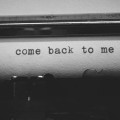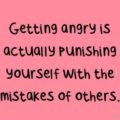
Fearing the worst became a natural reaction after my dad died by suicide. Shocked by the unexpected, life-altering news of his death, my brain instinctively shifted to a permanent state of high alert. When friends and loved ones don’t answer their phone, I start to panic that something terrible happened. If I don’t receive an e-mail from someone in a timely manner, I immediately wonder if I need to check in on them further. Dismayed by my dad’s death, I often worry that someone else in my life might choose this path and that I won’t be able to handle it. I worry about the reaction my unborn children will have to learning their grandfather died this way. I am also terrified every time I see a red “breaking news” alert on websites, since that’s how I learned my dad died. It makes for an awful lot of stress when those red bars appear at the top of the page so frequently. From what I understand, fear after suicide is a natural feeling, but it’s uncomfortable to live with.
Over time, I have tried various coping mechanisms to deal with this newfound level of fear in my life. One of the most helpful resources has been ongoing grief counseling, where I am able to talk through my latest fears and understand that they are often irrational. Through this counseling, I have also practiced a tactic called “tapping.” Many therapists are educated on how to lead their clients through tapping. It essentially entails tapping various points on your body with your fingers and repeating calming phrases until the energy in your body is lessened or redirected. I’ve really enjoyed this.
In years past, I did something similar after a car accident. However, this time, I was asked to recall what I experienced while pretending that the person who brings me the most comfort in my life (my late grandpa – my dad’s dad) was with me when the accident happened. Imagining what he would have done and said if he were with me helped me look back at the incident in a much lighter way.
Acupuncture and meditation have helped me relax during major fear-fueled freak-outs. Simply taking an hour to relax on the table or to spend 10 minutes sitting calmly listening to music can help snap me out of a moment. I have also started wearing a bracelet every day that says “Stay in the moment.” As mentioned above, it’s not uncommon for me to start worrying about things 10 years or more down the road, which is obviously a waste of time and energy. And, talking about my fears with fellow survivors has allowed me to see that this is all really normal, albeit annoying.
I can’t say that I’ll ever go back to “normal” and assuming that if people don’t answer my phone call that they could be busy. I am trying really hard, but I also give myself permission to feel these emotions and do what I can to be gentle with myself. I can’t be expected to shake this in two years, or 12 for that matter. Though it has its days, I like to think I have my fear in careful check.
Do you experience fear? How have you coped?



